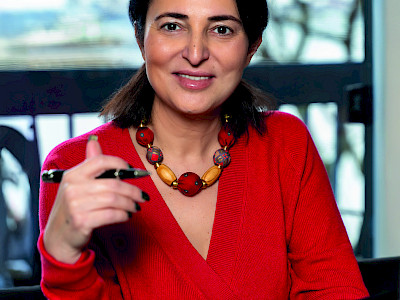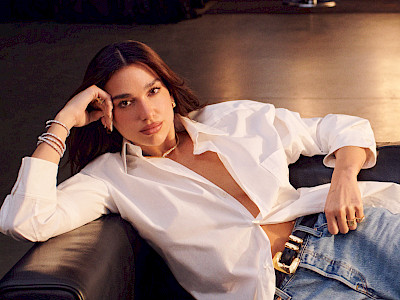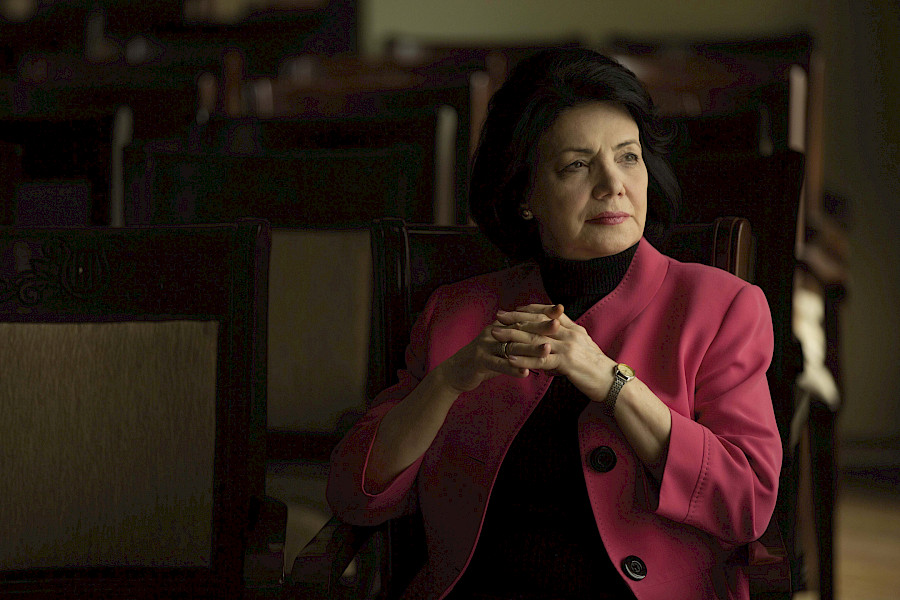
The bright representative of Azerbaijan's creative elite, talented experimenter, whose name sounds from nearly all major music halls of the world, managed to destroy stereotypes and to prove: nothing is impossible – East and West can meet! Her music brings together eastern and western schools, history and modernity. And in 2007 People's artist of Azerbaijan, composer and musicologist Franghiz Ali-Zadeh took on her fragile shoulders another heavy organizational burden, by chairing the Composers Union of Azerbaijan. My call to Franghiz khanum with an interview request peaked on busy season – an active preparation for two large events was going at once: to the Nasimi festival and Uzeyir Hajibeyov International Music Festival. While she was recollecting in her memory and listing multiple preoccupations among which she needed to find time for an interview, my imagination distinctly drew as this strong woman gives accurate tasks, her trained eye notices the smallest gaps, and at the end of the day, she tired, but happy, takes a picky look to the done work and exhales: it is time to go home! But not so fast: calls, requests, problems come raining like from cornucopia, so there is no time to rest. And tomorrow... Tomorrow get ready to fight again!
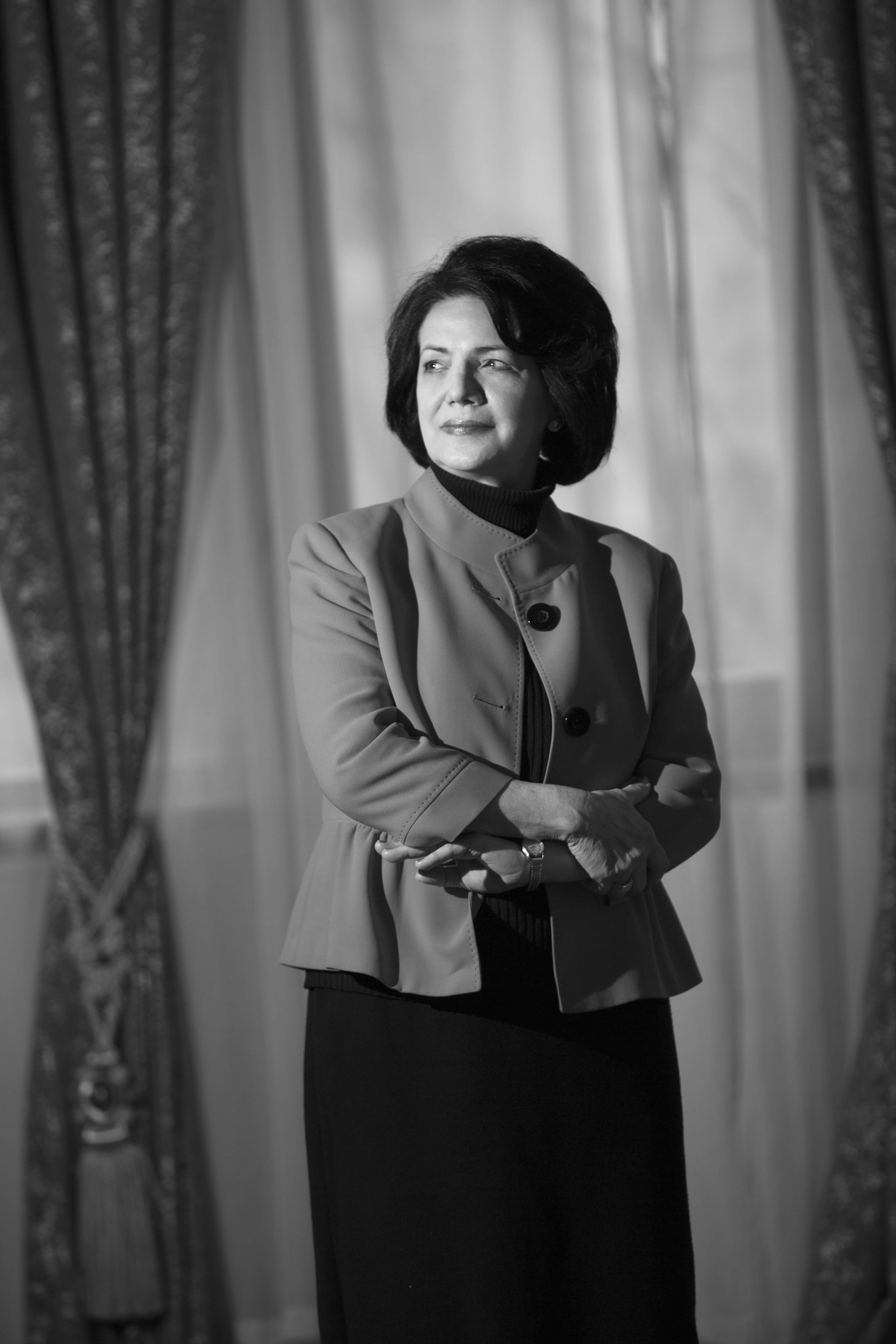
“Artist for Peace” is an honorary title, given by UNESCO to persons of artistic profession “for their contribution to heighten public awareness regarding problems of peace, justice, tolerance, children, to fight against illiteracy and environmental conservation”, to strengthen cultural and artistic exchanges between nations and countries. Founded in 1995, it is more often mentioned as an "Artist for Peace".
Franghiz khanum, seems like there is no end in sight for cultural events of our country…
Yes, I guess, it is hard to find another country where so many international musical events would be held: Uzeyir Hajibeyov and Qara Qarayev festivals, World of Mugham (Muğam aləmi), the "Silk Way" festival in Sheki, the Qabala festival, “Zəriflik” dedicated to memory of Zarifa khanum, Rostropovich festival, Jazz festival... It is pleasant that every year the number of new interesting musical events increases , enriching the introduction about history, culture, music of Azerbaijan, about the level of spiritual life and ethical values of our people to world community. In this regard it's necessary to mention proactive, energetic activity of Heydar Aliyev Foundation and its head, the first vice-president of our country Mehriban khanum Aliyeva. Because thanks to her representation Azerbaijan's Mugham music, ashug art, tar were included to the List of the Intangible Cultural Heritage of Humanity, having become the attractive force which brings to Azerbaijan music fans and professionals, scientists and researchers, the famous performing collectives and soloists from all over the world. Last year with great joy we learned about a new initiative of Leyla Aliyeva, the vice-president of Heydar Aliyev Foundation. This was about the ingenious medieval thinker and poet – Imadeddin Nasimi. It is a brilliant idea to dedicate a festival to such personality, which should have been realized at the highest level. And it is quite natural that the Union of composers of Azerbaijan, all composers and musicologists of our country made their contribution to this noble cause.
I know that you have a special relationship with Nasimi’s art…
Yes, the destiny brought me together with his poetry in far 1998 when I created the composition "Dervish" for the transcontinental program of Yo-Yo Ma Silk Road, which passed through the best concert halls of the world. And not so long ago, in 2017 in the Amsterdam Royal Concertgebouw my "Nasimi Passion" was performed which was warmly received by the European public and the international media community. Not by coincidence this piece was recorded right after on the CD of the Dutch firm HORIZON-8 and breaks sales records.
It is believed that the musical taste should be inculcated since childhood. Do you find it hard for unprepared listener to accrue to musical culture through difficult pieces?
Of course, musical, as well as any other, taste is needed to be cultivated since childhood. Everything is important – family atmosphere, school teachers, friends circle, entertainments. If you manage to accustom a schoolchild to attend a concert or a play at least once in a week, then over time it can turn into a very good habit. And it's really not so easy to come to understanding of difficult symphonic works. Not even all musicians accept and understand music of Arnold Schoenberg or Karlheinz Stockhausen. Nevertheless, the process of gradual comprehension of the music mystery has to happen to each thinking person, though in a very individual way.
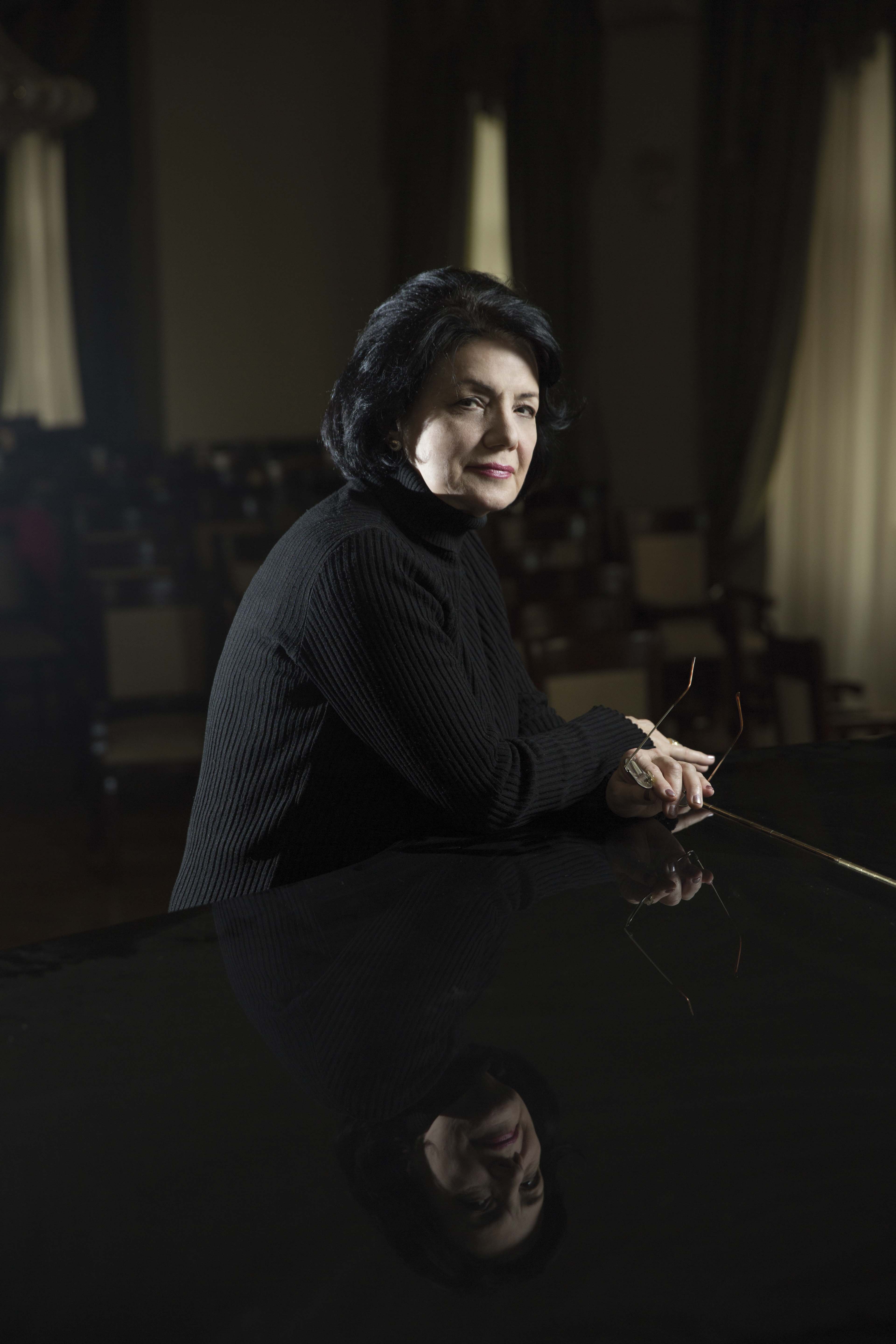
It is no secret that classical music is an asset of mainly chosen, enlightened sector of society , whereas the modern culture is focused on the mass consumer. Is it necessary to reckon with modern realities, to go with the times? Or classics need to remain classics in its pure form, rely on immutable traditions?
Unfortunately, we often witness how the mass musical products by quantity outstrip classical art. If a person listens to the same song hundreds of times every day, sooner or later he begins to get used to it and even remembers and sings it. But it does not mean that this is art, which goes with the times! In this regard radio and television, heads and musical editors, tv show hosts have a huge importance. If a host of the musical program on TV is not able to correctly spell the name of the composer, then what is the point? Culture is a complex sphere, there is no country that could admit that everything in this field is allright. The perfection in culture is unachievable, and each person, the musician, collective, society, the country goes through a certain way, experiences a continuous development. To our happiness, we have mugham, Uzeyir Hajibeyli, Qara Qarayev, Fikret Amirov, and in this point we managed to pass quicker the way, which in other countries took decades and even centuries.
Is it possible to speak about the loss of interest to the academic music in the 21st century, in our country in particular?
Musicians will always have interest in the classic music. And as for the general public, it is natural that everyone makes his choice. Azerbaijanis are raised up on mugham and folk music, therefore, their taste differs by selectivity. I am sure that no Azerbaijani will remain deaf to really bright and professional music.
How do you evaluate contemporary music, its current state?
Modern music has many various directions and types, the Internet is full of different works and compositions. Naturally, there are valuable examples and mass-produced garbage among them. Examples of synthesis of eastern and western cultures are especially interesting today. This fashion trend is now in Azerbaijan, and we have a lot of evidence for it.
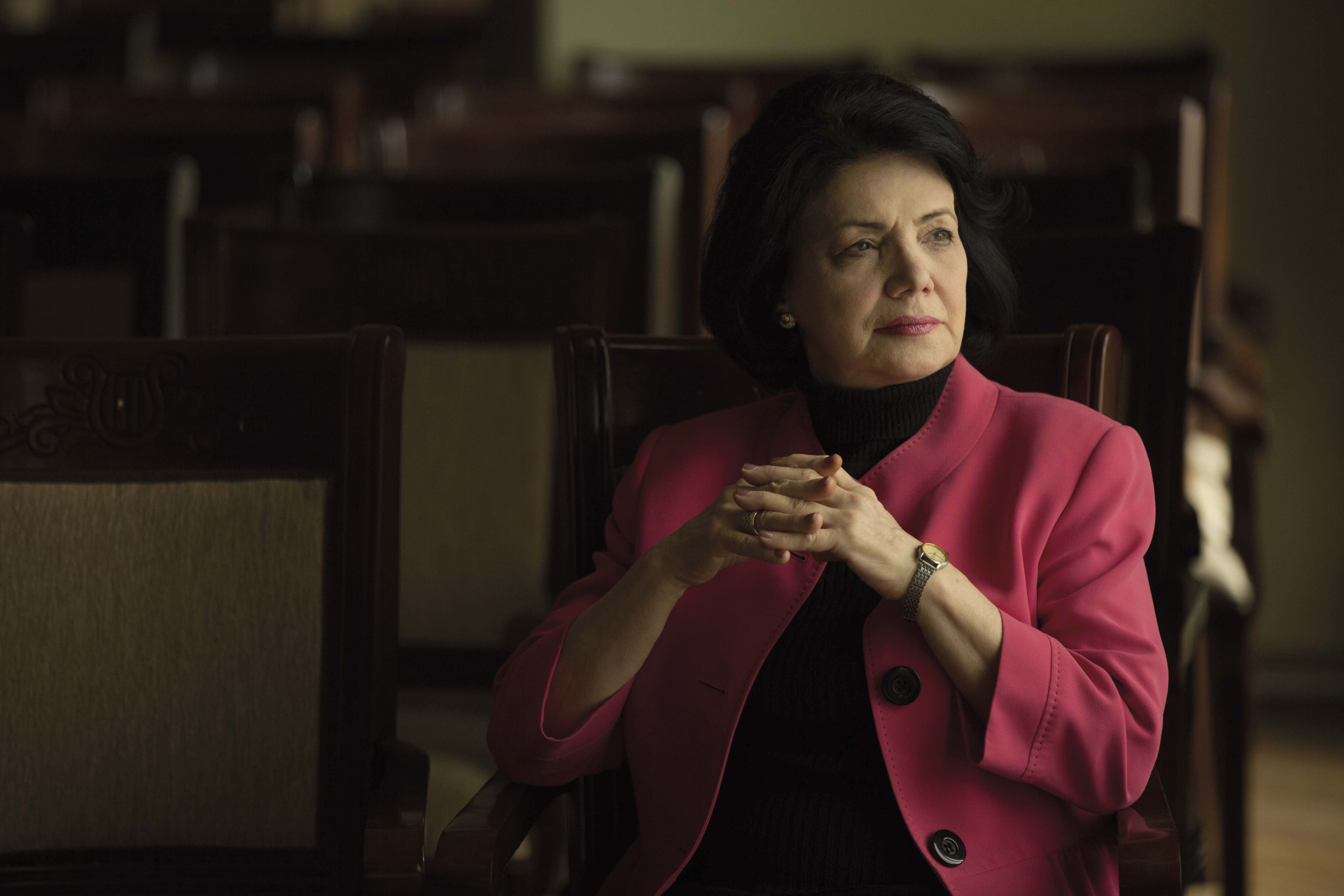
Does modern musical culture need a strict traditional genres classification? What do you think of mixture of genres as one of the ways of creative self-expression?
I will need to remind you that our first opera – "Leyli and Majnun" in which mugham improvisation amazingly connected with the western opera esthetics – thanks to the genius Uzeyir Hajibeyli was very viable and opened to our music absolutely new ways of development. Such interpenetration of genres and ways of self-expression take place today as well.
You were interested in avant-garde, played Schoenberg and Berg those days when their music had no serious status in society yet. What are your musical preferences today? Are there any new names in your list of young talents?
When playing the music of avant-gardists in my youth, I was really interested in their ideas of the musical language renovation, performance styles, and those years have made a strong basis for my following musical activity. New names appear both here in Azerbaijan, and in the West. The youth experiments, searches and sooner or later finds its own way. The most difficult part perhaps is to have your own unique musical language. In the Union of composers every year we hold plenaries for young talents, where their works are being performed and then discussed at conferences with participation of musicologists. I can name a number of the young composers who have left the most favorable impression: Tural Mamedli, Farid Fatullayev, Ilaha Israfilova, Ayaz Qambarli, Said Gani, Tair Ibishov.
The management of the "World of Mugham" festival, presidency in the Union of composers, holding of a huge number of events – all this demands both time and outstanding organizing skills. What is it like for a creative person who sometimes needs a little peace and quiet?
We all dream about peace and quiet... But without work and new ideas this will be dead silence. That is the value of peace, because it comes after successful work as a deserved gift.
What additional responsibility was entrusted you with "UNESCO Artist for Peace" title?
The "UNESCO Artist for Peace" title, surely, imposes certain obligations. We have many joint projects in which "Peace Artists" from other countries are involved. Often it is also necessary to write new scenarios for the events connected with our country, with East in general. Besides, I performed my works on stage of the UNESCO headquarters more than once – the last time was in May, 2017, with the performance dedicated to Nasimi.
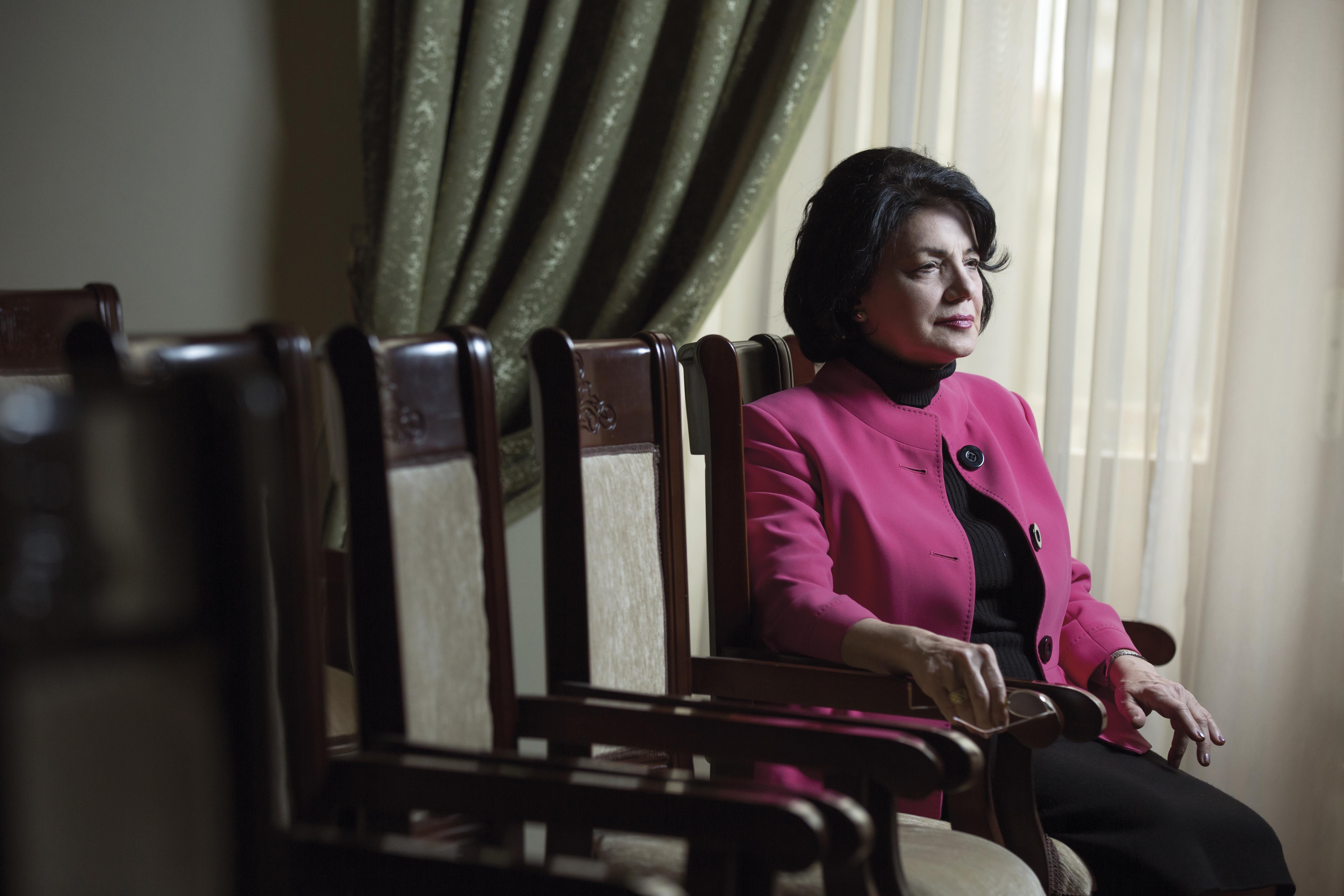
You visited many countries, you did enormous work with a huge number of performers. With which of them the collaboration for you was especially interesting and memorable?
First of all, of course, it's Mstislav Rostropovich, Yo-Yo Ma, Berliner Philharmoniker, Royal Concertgebouw Orchestra, Kronos Quartet, brilliant Hilary Hahn. All of them are top-class musicians, and cooperation with them brought me huge joy.
Interview by Nigar Maharramova, Photo by Parviz Gasimzade
The material was published in the 60th issue.


